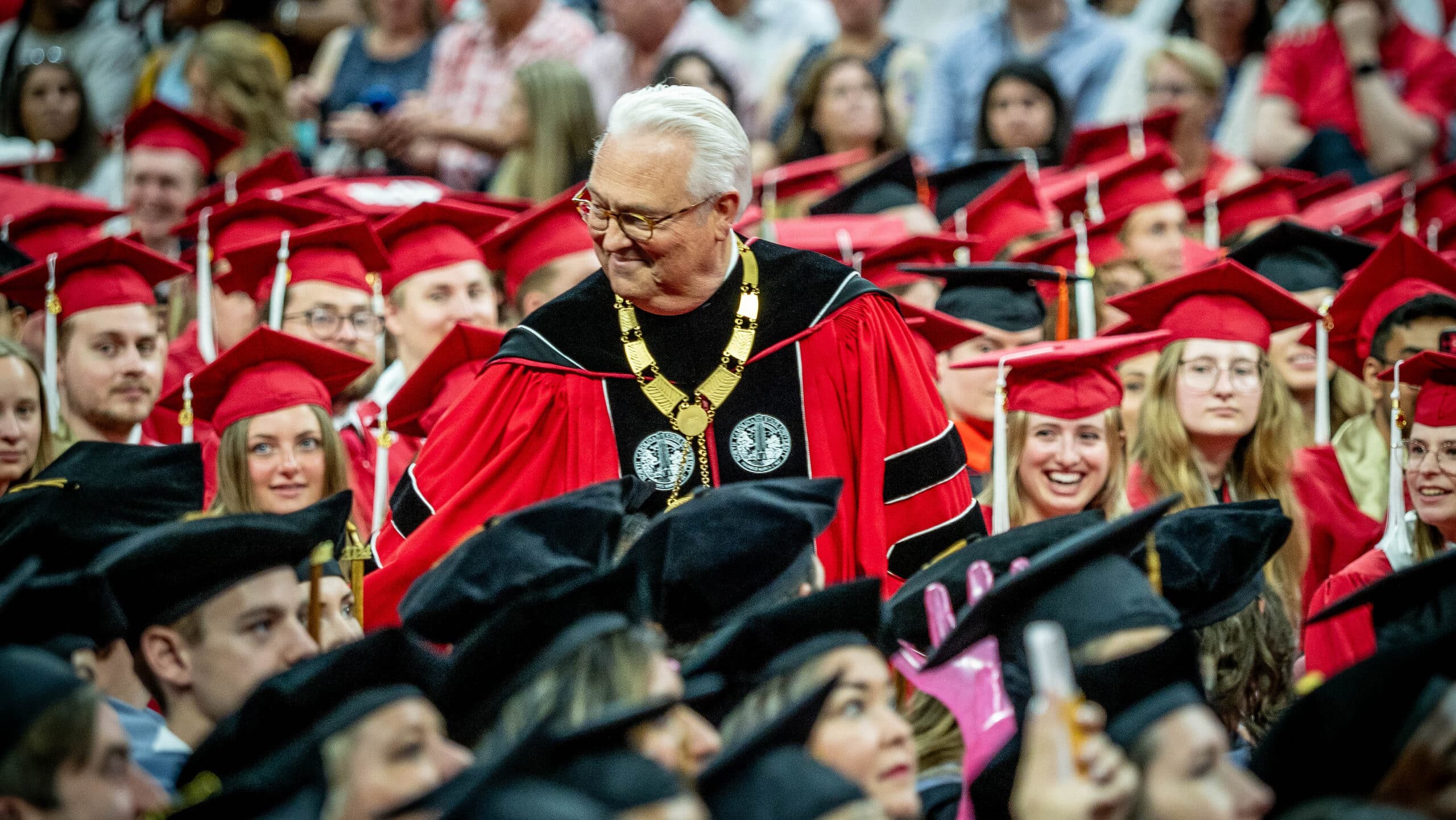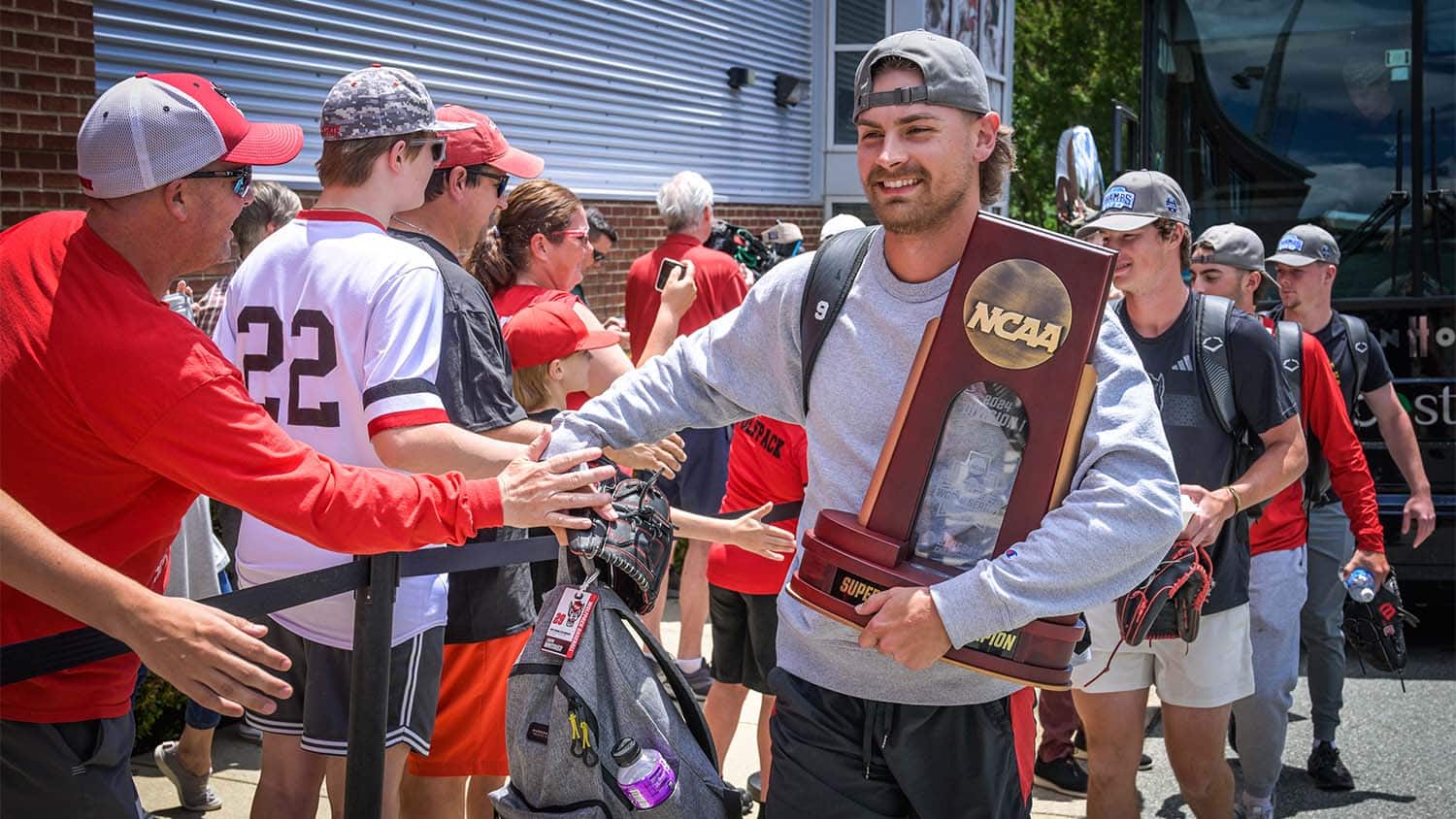Embedded Counseling Is Making Mental Health Services More Accessible
NC State's Counseling Center is expanding its reach across campus through embedded counseling in the university's 12 colleges.
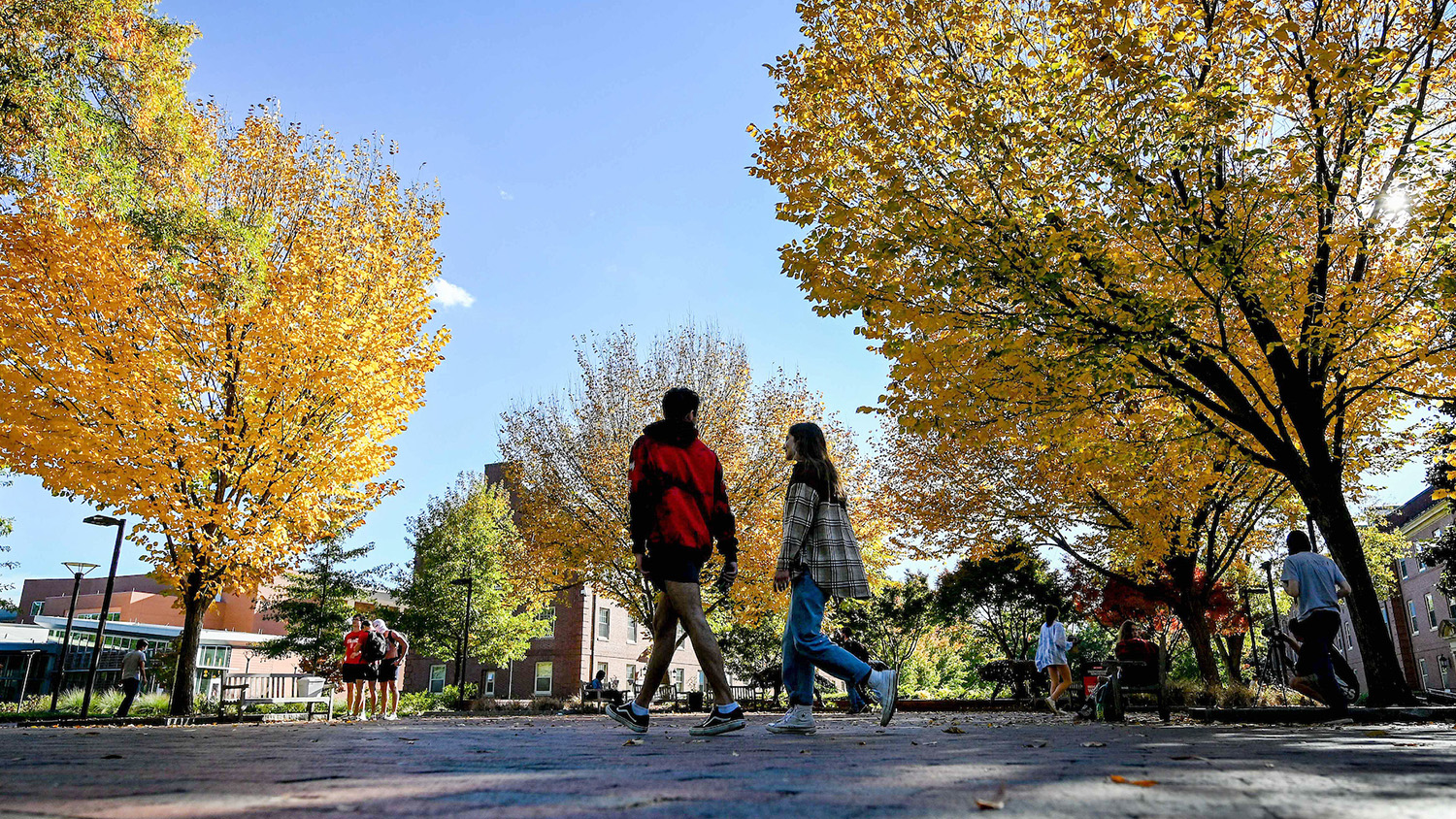
At NC State, we take care of our Wolfpack. We’re committed to creating a caring culture that supports each student’s well-being. Through embedded counseling, we’re making mental health services more accessible and attuned to the unique needs of each of the university’s colleges.
The concept isn’t new. Years ago, NC State placed embedded counselors in areas like Athletics and the College of Veterinary Medicine (CVM) in response to the tight schedules and distance from Central Campus that made it difficult for student-athletes and veterinary medicine students to access the Counseling Center. Campus Health also has an embedded counselor who helps providers support students presenting symptoms of mental health conditions.
Embedding clinicians across campus was one of the recommendations made by the Student Mental Health Task Force in February. But even before the task force was formed, plans were in motion to expand embedded counseling to each of the colleges. Monica Osburn, executive director of the Counseling Center, had already begun looking into securing an embedded counselor for the College of Engineering, due to its location on campus and an anticipated rise in enrollment. Additionally, the College of Agriculture and Life Sciences (CALS) ran a successful embedded counseling pilot program two years ago. In January, CALS partnered with the College of Sciences to create a joint embedded counselor position serving both colleges’ students.
And there’s evidence that the embedded counseling model works. Other large institutions, including the University of Michigan, the University of Iowa and The Ohio State University have successfully implemented such programs.
“We’re among solid peers in this initiative,” said Osburn. “Embedded counseling is a national model that has been recognized as important and meaningful in the clinical environment.”
The Role of Embedded Counselors
Embedded counselors are dedicated to their Pack. With offices in their respective colleges’ buildings, they integrate themselves into their college communities and form connections with faculty, staff and students. And each counselor is uniquely suited to fit into the college’s culture and meet the particular needs of its students.
For Laura Castro, it feels as though her role as director of counseling services at CVM was made for her. She gets to combine her love of animals, her experience counseling in medical settings and her Spanish-speaking skills to support veterinary students. While getting her master’s in social work from the University of North Carolina at Chapel Hill, she interned at the university’s Counseling and Psychological Services and got to work with medical students.
“Through my experience at UNC, I gained an understanding of the unique stressors that come with working in a medical setting and in a teaching hospital with live patients,” she said. “CVM students have the lives of animals in their hands, so the stakes are high and the work can be emotionally taxing.”
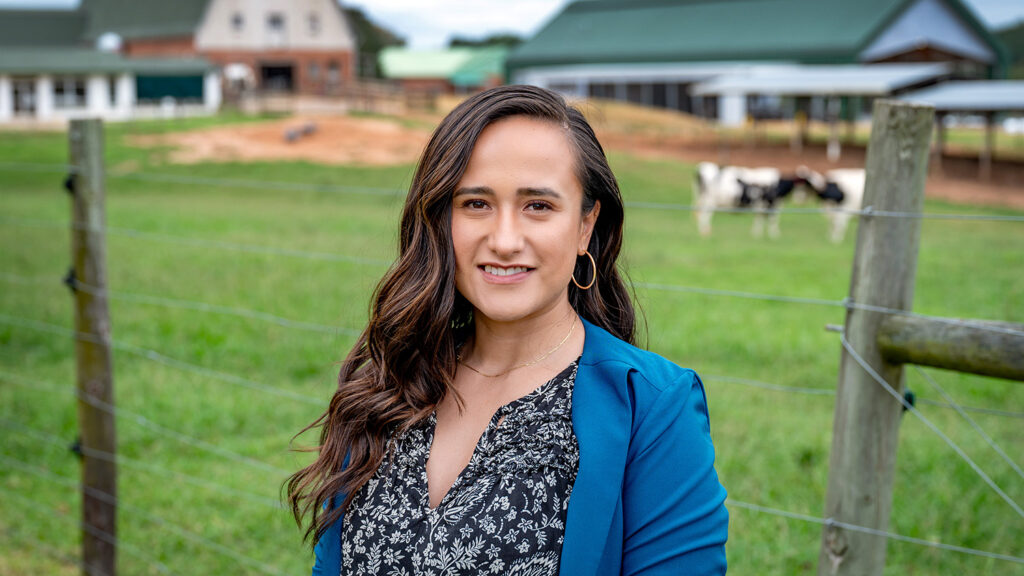
Castro’s fluency in Spanish is an additional asset to the college. The number of Latinx veterinarians is increasing, and CVM has a number of students and trainees from Puerto Rico and several Spanish-speaking countries.
“Students whose first language is Spanish often feel more comfortable speaking in their native language. Offering sessions in Spanish removes the layer of having to think about what they want to say, translate it and then express it,” said Castro. “That can be exhausting, and often they’re doing that all day in class, so counseling can be such a healing and cathartic space where they can just put their guard down and be themselves. That really helps with accessing vulnerability in therapy and opening up.”
CVM has had embedded counseling for over 20 years, making the counselors established members of the community. Castro and Matt Bishop, a clinical counselor at CVM, are familiar faces around the college and have gained the trust of faculty, staff and students.
“The students see us around campus, so when they need help, they know they won’t be reaching out to a complete stranger,” said Castro. “They also know we have the knowledge and context about their experience at CVM. That’s really important because the culture in the field of veterinary medicine can feel really unique and different from that of other professions.”
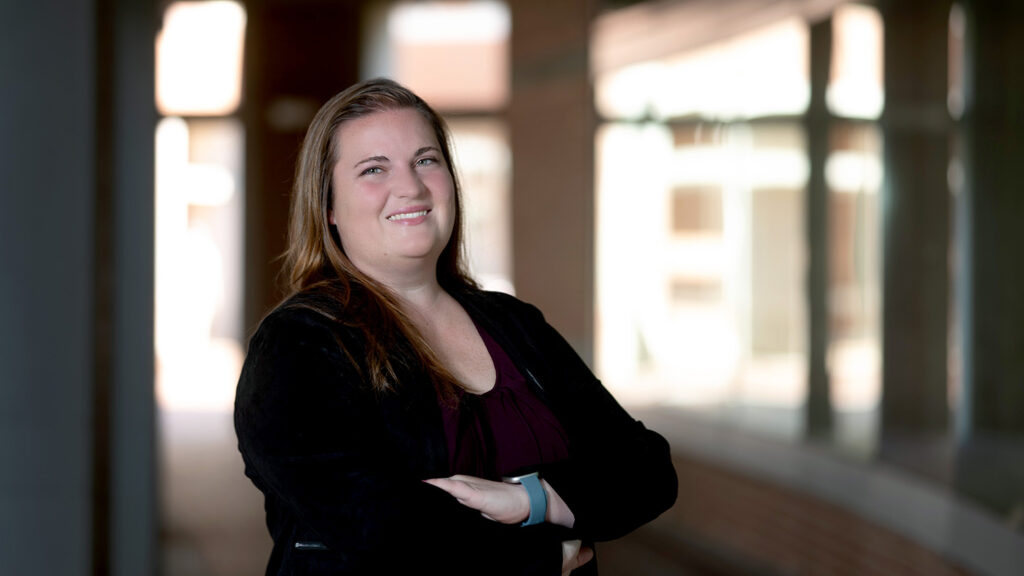
At the College of Engineering, embedded counselor Hannah Lavasque brings her passion for working with neurodiverse populations — particularly individuals with ADHD, OCD, autism spectrum disorder and sensory sensitivities — into her work. In graduate school, she took on neurodiversity-focused practicums and internships, including a position at the J. Iverson Riddle Developmental Center. The facility is one of North Carolina’s three state-run centers for people with intellectual and developmental disabilities. Since joining the College of Engineering in December 2022, she and Miranda Liu, the other embedded counselor at the college, have completed a neurodiversity-affirming care training.
“The embedded counselor job description was very neurodiversity forward, and I was excited to see this. Having the position be so neurodiversity-focused benefits the College of Engineering because, as an engineer, you almost need to think about the world in a different way,” said Lavasque. “And so people whose brains work a little bit differently than the way society expects them to, tend to gravitate toward fields like this. I was really excited that the college was aware they needed that type of support.”
A board certified art therapist, Lavasque finds that incorporating art into her sessions can be useful in helping clients feel more comfortable and manage their emotions.
“I will never force a student to do a specific style of therapy with me. But if a student is open to art therapy, that’s an option,” she said. “Sometimes we’ll do watercolor splatter paints when some energy needs to be released, or origami when a little bit more controlled support is needed. And then for some people, it’s just a soothing thing to create while we talk. So we’ll use clay, markers, colored pencils or whatever is the right thing for the person at that moment.”
Lavasque’s family ties to the College of Engineering add to her excitement toward supporting engineering students in their academic journey.
“There are four College of Engineering graduates in my family, and seeing what they gained from their NC State education and how happy they are in their careers was a big draw for me,” said Lavasque. “And on top of that, it was cool to see how they were able to use their education — they work in environmental engineering — to benefit the farm I grew up on in Mocksville, North Carolina.”
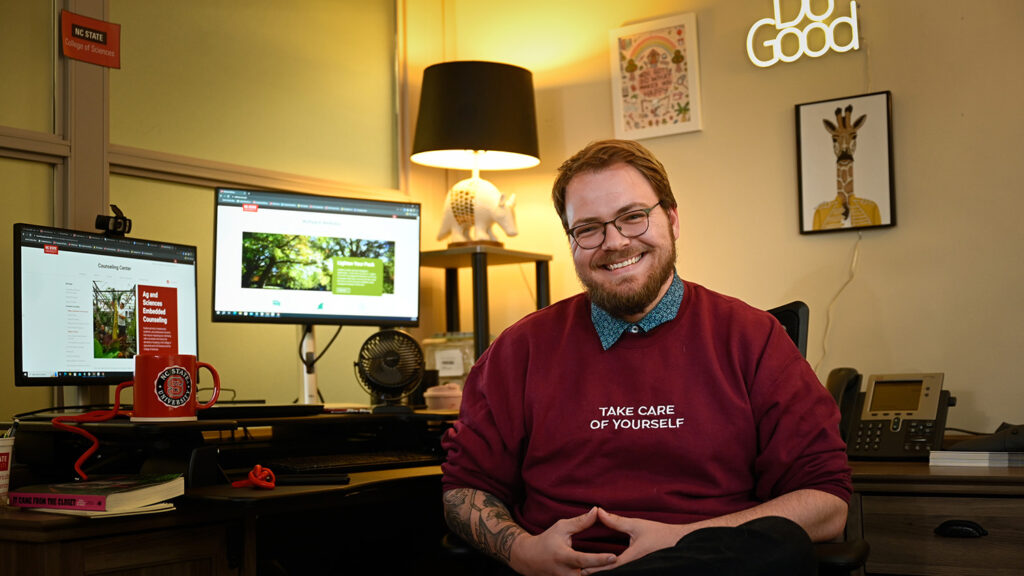
From the time he was in high school, Luke Strawn, the embedded counselor for CALS and the College of Sciences, knew he wanted to pursue a career in which he could fight the stigma surrounding mental health and provide people with the support they needed.
“When I was in 10th grade, a friend of mine lost her mother to suicide. And that was my first true exposure to mental health concerns and mental health issues,” he said. “That got me interested and invested in playing a part in showing a little more love in the world. That calling came pretty young and hasn’t been swayed at all.”
Strawn’s role is unique in that it’s part of a collaboration between CALS and the College of Sciences to provide mental health and overall wellness resources to students in both colleges, taking into account the overlap between them. Through the Ag and Sciences Embedded Counseling partnership, Strawn supports students who take classes in both colleges.
“For instance, a biochemistry major would technically fall under CALS, but there’s a lot of Sciences classes involved with that. A zoology major falls under Sciences, but there’s a little bit of CALS that goes into that, too,” said Strawn. “The Ag and Sciences Embedded Counseling program is geared toward supporting students across the board, no matter which college they’re in. It allows for a neat collaboration, not just at my level, but at the college leadership level.”
Strawn offers drop-in hours in the Bureau of Mines, which houses the College of Sciences’ administrative offices, and Patterson Hall, home to the CALS administrative offices. Having a presence in both spaces allows him to form relationships with administrators and academic counselors from each college. He’s then better able to connect students with the specific academic resources they might need.
He also helps students navigate issues related to anxiety, relationships and, for first-year and transfer students, the transition to NC State. For CALS students in particular, Strawn has noticed that the change in environment can be jarring.
“A number of CALS students come from rural backgrounds and for those students, coming to NC State can almost be a culture shock,” he said. “For some of them, mental health wasn’t something that was talked about in their hometown. Counseling is a space where they can come in and say, ‘Hey, I’m struggling.’ And they can explore some parts of their identity that they may not have had the opportunity to consider before.”
Fostering Caring Cultures at the Colleges
Through drop-in hours, consistent one-on-one sessions and group therapy, embedded counselors support students directly. But they don’t stop there. They collaborate with faculty and staff to foster an academic environment where students can thrive.
While each college has its own unique needs and challenges, university students as a whole struggle with issues like anxiety, depression, homesickness and building community. To combat this at the classroom-level, the embedded counselors educate their colleges’ faculty on recognizing signs and symptoms of distress in students. They accomplish this by giving presentations at faculty meetings or during classes.
“I recently spoke to a class about stress management and counseling center resources because the instructor asked me to. I’m always happy to give presentations for faculty and staff who are asking for that for their students,” said Strawn. “We’re trying to make sure that we’re both equipping faculty and staff with the right tools, but also making ourselves a complementary resource for them as they support students through the semester.”
Castro attends faculty meetings to discuss embedded counseling services at CVM and provides in-class mindfulness sessions as requested by faculty. Each semester, she hosts two suicide prevention trainings for faculty and staff that are tailored to the CVM population.
We put a lot of effort into building relationships with faculty, because it’s so much easier for them to refer students when they know who and where we are.
“(Bishop and I) have built a relationship with faculty and staff where they can come and consult with us if they are worried about a student in their class or somebody in the community,” said Castro. “We can help them support the person in need and get them connected to our services. So we put a lot of effort into building relationships with faculty, because it’s so much easier for them to refer students when they know who and where we are. They can walk students to my office.”
The embedded counselors are also intentional about participating in college events and programming to increase their visibility and maximize their impact on their communities. At a self-care event hosted by the College of Engineering’s diversity, equity and inclusion unit, Lavasque provided a table where students could create a collage about their intentions for the semester. At a recent Ag and Sciences Career Expo, Strawn was available for guided meditation and mindfulness to help students decompress throughout the event.
“We all experience mental health needs. It’s a part of everybody all the time. So the more we can make counseling something that’s here and present all around us, the less scary it becomes,” said Lavasque.
‘This Is About Providing a Variety of Options’
Embedded counseling is only one of the many resources students can take advantage of through the Counseling Center. The program expands the center’s reach beyond the walls of the Counseling Center, advancing its mission to provide each student with timely and quality care that best fits their needs.
“The embedded counselors take great care to understand their community’s environment because every college’s tempo is a little different and what may be true in one might not be in another. But we also want to make sure we tend to the inverse of that,” said Osburn. “Some students don’t want to see an embedded counselor because they’re too close. They don’t want somebody who is right there in the same building they have to be in every day. That’s why we still have the Counseling Center on Central Campus. This is about providing a variety of options that are going to meet the needs of our students.”
The Counseling Center’s services include group counseling, workshops to help build coping skills for anxiety and depression, and off-campus referrals, which are made in the event a student prefers to see an external counselor or requires long-term care or a particular area of specialization. Group counseling topics range from body positivity and neutrality to coping with homesickness. Lavasque runs an expressive art group at the Campus Health building on Wednesdays that is open to all.
Seeking help can be daunting, but the Counseling Center is here to make it as easy as possible. Students can fill out the initial paperwork online on their own or see a triage counselor (or embedded counselor) for assistance. Next, the student meets with a triage counselor to determine the level of care they need and the best course of action. The process usually takes under a week and can happen in a day, if needed.
“If a student wants to be seen today, they will be seen today,” said Osburn.
For students who are referred off-campus, triage counselors can help them apply for grants to cover co-pays and other fees. Students also have access to 12 free telehealth counseling sessions via AcademicLiveCare, which offers appointments outside of the traditional 8 a.m. to 5 p.m. window.
And to the student who’s unsure about asking for help, there’s no concern too small.
“I’ve had students say things like, ‘I feel like I’m taking the space of someone else who could use this more,’ or, ‘I don’t have time,’” said Strawn. “Well, you pay student fees, so you have a right to these resources. And yes, you’re a student and you have 20 million things going on. But you’re a person first.”
- Categories:
